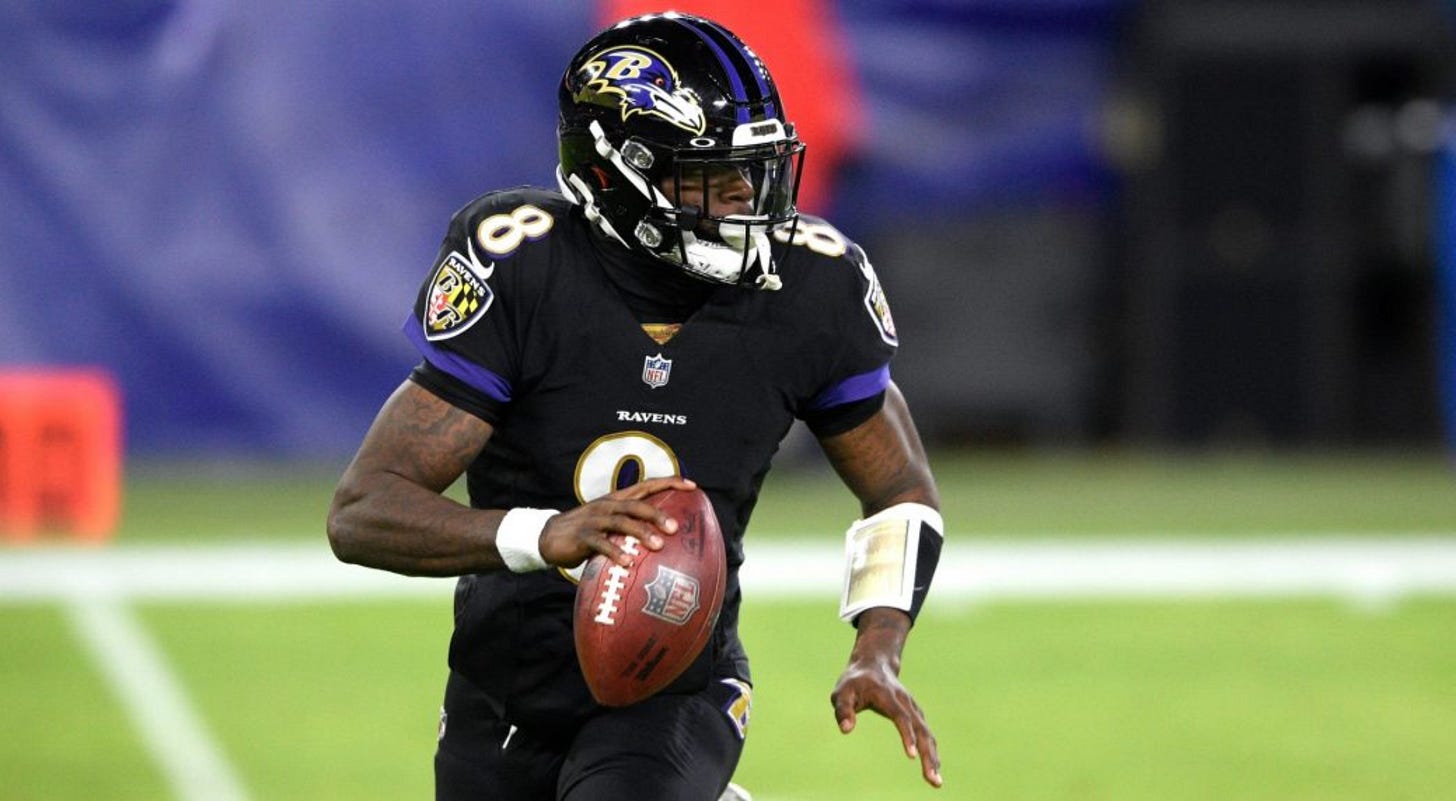Contract Negotiation Guide for Lamar Jackson
My best ideas on how players should be thinking about contract negotiations generally, with specific advice for Lamar Jackson
This analysis is going to come at the free agent question a little differently than it’s usually framed. I’m going to try and put it from the free-agent player’s perspective, not the team’s. Players are naturally in a reactive position in negotiations; they can only accept or decline what’s been offered. That said, they still have to think heavily about opportunity costs, including what they could get from other teams, and the range of outcomes over the timeframe of their next contract, which can be as short as a one-year franchise-tag.
A few things to think about for all players entering free agency:
The franchise tag is enormous leverage for teams and sets the ceiling for what they’ll be willing to pay in a short-term deal, as long as they don’t have multiple franchise-tag candidates in the same offseason. You’re always negotiating against the tag, which is particularly powerful in the NFL where careers at many position can be over in the blink of an eye.
Cash is king. Getting as much as possible as soon as possible should be a goal, not maximizing the annual per year (APY) amount. In fact, contracts that start small and jump up in future years can de facto price players out of their jobs, see Derek Carr’s deal that went from a cash/cap hit of $25M/19M in 2022 to $33M/$35M in 2023. Don’t do teams favors in the short-term.
A fully guaranteed deal isn’t the Holy Grail. There isn’t some special agreement between the NBA and its players associations to allow or require full guaranteed contracts. The NBA has fewer players and players have substantially longer longevity. If NFL players want guaranteed contracts, they can get them by conceding other provisions, mostly the length of the deal, but also the ultimate finances. There’s simply more uncertainty for NFL teams that the level of player performance they see today will still be there in the future. For quarterbacks, the situation is a little different, and their career arcs are more stable. Even so, the only structural way to get more guaranteed money into big deals would be to loosen the escrow rules that require teams to put aside the guaranteed money in its entirety on day one. The NFL should probably do that as the state of the league is so rock-solid that there’s no conceivable scenario for a team being unable to pay out the guaranteed money owned to a player.
Try and thread the needle for guarantees and cap hits to force future restructures. This is a little esoteric, but also potentially very beneficial to quarterbacks, whose contract serve as the primary source for teams to restructure and open up cap space. Because quarterback contracts are 1) big and 2) attached to players with more longevity, teams are willing to kick the can and free up current cap space by extending how long they’re tied to quarterbacks. Dak Prescott’s deal is a great example. By having the 2023 guarantee kick in a year earlier, when the Cowboys would always want to retain Prescott at his low 2022 cap hit, the Cowboys are now faced with the need to restructure of extend Prescott’s deal in order to free up cap space by lowering his $49.1 cap hit. The player either gets immediate cash from the restructure, or is in the driver’s seat negotiating the extension terms. Either way, the ability of the Cowboys to cut Prescott in future seasons will be compromised, giving the player protection against the most dire consequences of poor play.




